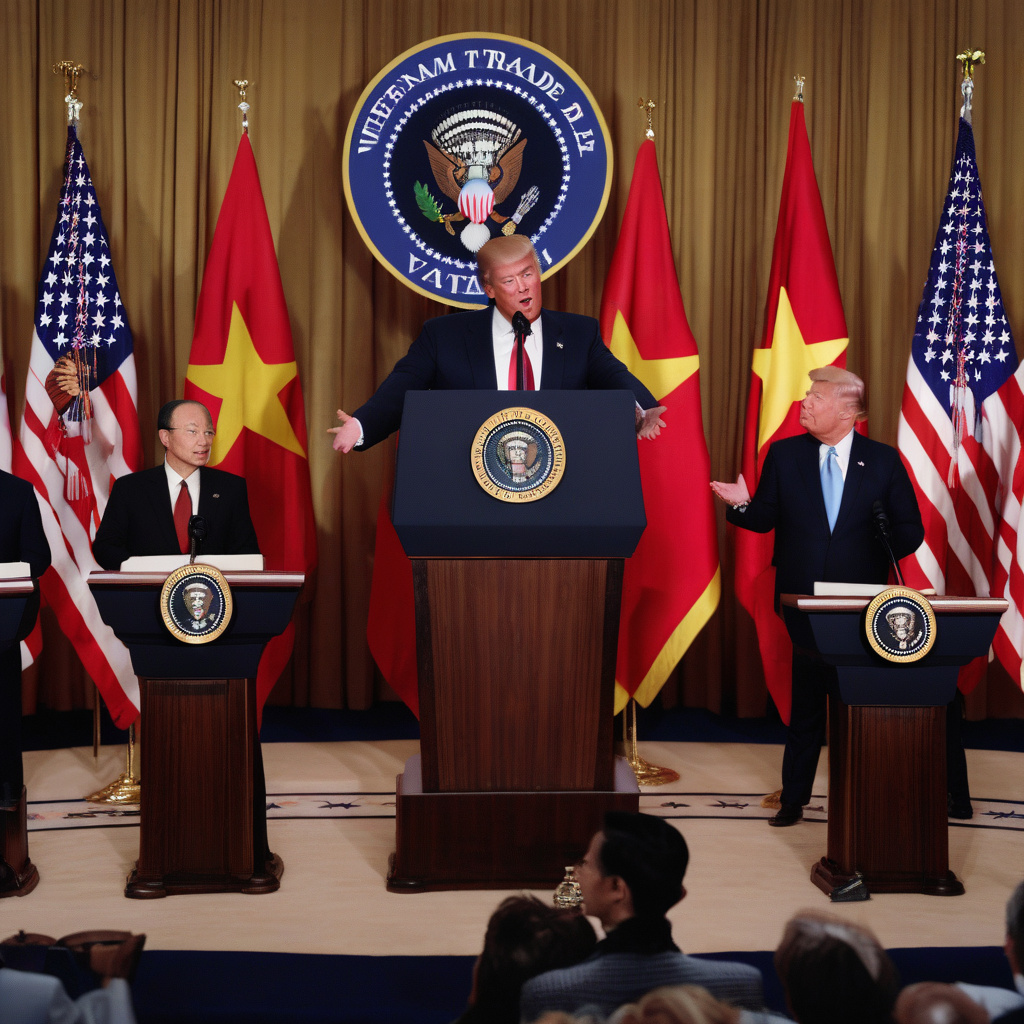Trump Announces Vietnam Trade Deal With 20% Import Tariff
President Donald Trump has made headlines once again with the announcement of a new trade deal with Vietnam. After weeks of intense negotiations and diplomatic efforts between the two nations, Trump revealed that a deal had been reached just in time to avoid higher tariffs on Vietnamese imports. The agreement includes a 20% import tariff, marking a significant development in the trade relations between the United States and Vietnam.
The trade deal comes at a crucial time, with tensions running high between the two countries in recent months. The threat of increased tariffs loomed large, putting pressure on both sides to come to a mutually beneficial agreement. Trump’s announcement of the deal signals a potential easing of trade tensions and a step towards a more stable economic relationship between the US and Vietnam.
The 20% import tariff included in the deal is set to have far-reaching implications for both countries. For Vietnam, it means that their exports to the US will now face a higher cost, which could impact their competitiveness in the American market. On the other hand, the tariff provides a level of protection for American industries, potentially boosting domestic production and job creation.
This move by Trump is in line with his administration’s “America First” policy, which aims to prioritize the interests of American workers and businesses in the global trade arena. By imposing tariffs on imports from countries like Vietnam, the administration hopes to address trade imbalances and protect key industries from foreign competition.
Critics of the tariff argue that it could lead to higher prices for American consumers, as companies may pass on the additional costs to their customers. They also warn that such protectionist measures could trigger retaliatory actions from trading partners, leading to a broader trade war that harms the global economy.
On the other hand, supporters of the tariff see it as a necessary step to address unfair trade practices and level the playing field for American businesses. By making it more expensive to import goods from Vietnam, the tariff could incentivize companies to source products domestically or from other trading partners, potentially boosting domestic production and job growth.
The impact of the trade deal and the 20% import tariff will likely be closely monitored in the coming months. Analysts will be watching to see how Vietnamese exporters and American industries adapt to the new trade landscape, and whether the deal leads to a more balanced and sustainable trade relationship between the two countries.
Overall, Trump’s announcement of the trade deal with Vietnam marks a significant development in US-Vietnam trade relations. The inclusion of a 20% import tariff underscores the administration’s commitment to reshaping global trade dynamics in favor of American interests. As the implications of the deal unfold, it will be interesting to see how it shapes the economic fortunes of both nations in the months and years to come.
trade deal, Vietnam, import tariff, Donald Trump, diplomacy












